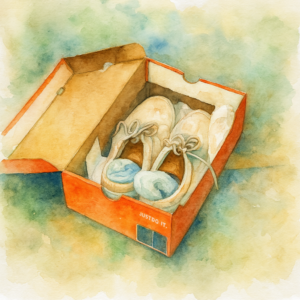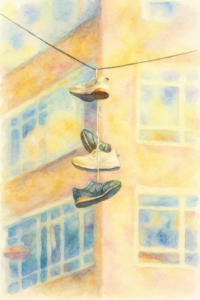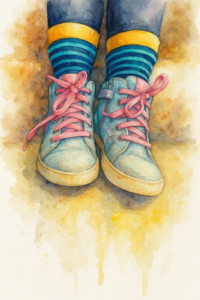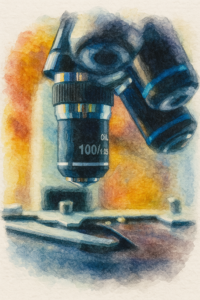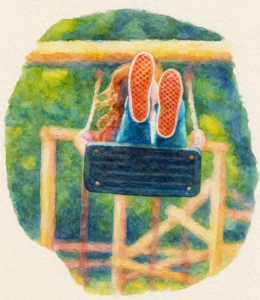Learn French with this clip from Les P’tits Bateaux. Find the full episode here. We do not own the content. The above audio sample and transcription is from Les P’tits Bateaux podcast. We do not own the content. Listen to the entire episode here. Chevronné What’s opening up for you with this clip? Comment below…
Start quiz, type what you hear, then join the conversation.
Did you find this one challenging or easy? Did you hear something diffferent? What surprised you? What levels did you complete? Comment below and share what’s opening up for you with this quiz.
Learn French with this clip from Les P’tits Bateaux. Find the full episode here. We do not own the content.
The above audio sample and transcription is from Les P’tits Bateaux podcast. We do not own the content. Listen to the entire episode here.
Chevronné
What’s opening up for you with this clip? Comment below with what was surprising, easy, challenging and/or interesting.
The snippet in English
Find a translation of this snippet here, how much of this did you hear?
Bah, ça a été des scientifiques, ça a été des aristocrates anglais qui faisaient ce qu’on appelait du tourisme, c’est-à-dire le Grand Tour.
C’est-à-dire qu’ils allaient en Italie, et pour aller en Italie, ils passaient par les Alpes. Et en gros, ils voyaient ça comme un loisir, comme un sport : monter jusqu’au sommet.
Ça a été des militaires, ça a été des curés.
Par exemple, le pape Pie XI a été un alpiniste chevronné.
Well, it was scientists, it was English aristocrats who did what was called tourism, the Grand Tour.
In other words, they went to Italy, and to get to Italy, they crossed the Alps. And basically, they saw it as a leisure activity, as a sport: climbing to the top.
Some were military, some were priests.
Pope Pius XI, for example, was an experienced mountaineer.
The above translation from Deepl
What does “Et en gros” mean?
Et en gros means basically or roughly speaking — it introduces a summary or general idea.
Et en gros, il a tout quitté pour partir en montagne.
(And basically, he gave up everything to go to the mountains.)
– Used in casual, spoken French
– Similar to en résumé but more informal
– Can mean more or less, to put it simply, or the bottom line is depending on tone and context
What does “loisir” mean?
Loisir means leisure or free time activity.
L’alpinisme est un loisir exigeant mais passionnant.
(Mountaineering is a demanding but exciting leisure activity.)
– Often used in the plural: les loisirs = hobbies or recreational activities
– Covers anything done for pleasure in free time: sports, reading, travel, etc.
– Related terms: centre de loisirs (recreation center), temps de loisir (leisure time)
What does “curés” mean?
Curés means priests, specifically parish priests in the Catholic Church.
Les curés jouaient un rôle central dans les villages autrefois.
(Priests used to play a central role in villages in the past.)
– Singular: un curé
– Often refers to a local priest responsible for a parish
– More traditional or rural-sounding than prêtre, which is more general and formal
🗣️ Common in France, especially in historical or cultural contexts. In Quebec, curé is still used but may carry more cultural or old-fashioned tones.
Really? “Le pape Pie XI”?
Le pape Pie XI (Pius XI) was pope from 1922 to 1939 — and notably, a passionate mountaineer. Before becoming pope, he climbed over 100 peaks in the Alps, including Mont Blanc and the Matterhorn.
If you hear what sounds like “le pape puyons” in spoken French about alpinisme, it’s likely a misheard version of “le pape Pie XI (Onze)” (Pope Pius Eleven). In fast speech, “Pie XI” sounds like puyons — especially since Pie is pronounced like pee and onze merges into -onz.
What does “chevronné” mean?
Chevronné means experienced or seasoned, especially in a professional or skilled context.
C’est un alpiniste chevronné.
(He’s a seasoned mountaineer.)
– Comes from chevron (a V-shaped military stripe showing rank or experience)
– Suggests someone who has earned their stripes through practice and expertise
– Used often in work, sports, or high-skill areas: pilote chevronné, journaliste chevronné
🗣️ Common in both spoken and written French, especially in formal or respectful descriptions.
Les P’tits Bateaux Podcast
Official synopsis: Les enfants posent des questions, des spécialistes leur répondent. Jeunes (et moins jeunes !) peuvent poser toutes les questions possibles et imaginables directement par message vocal via franceinter.fr, sauf pendant les vacances.
I recently discovered this podcast from InterFrance and love it. It’s kids posing questions and the host brings in experts to explain. And it’s aimed at young French kids, not French learners. That’s my favorite kind of content. Being for French kids is what makes it so good.
You’ve got real people (a kid, a host, and an expert), all speaking real French — no AI generated stuff here. The kid asks a question, and then an expert explains it in short, clear language. There’s a ton of repetition, natural turns of phrase, and just enough challenge to keep your ears working.
And because it’s meant for French-speaking kids, the adults naturally explain things simply but not condescendingly. You get exposed to rhythm, tone, interjections (bah, ben, alors), and full sentences — but also some real dialogue dynamics. And that’s gold if you’re trying to move from textbook filler to actually speaking and thinking in French.
Improving your French Listening Comprehension with Podcasts
On this site, fast spoken French is finally accessible to all levels. The tool break podcasts into short clips each set to transcription fill-in-the-blank practice. My favorite practice in class is always dictées. While they can seem overwhelming at first, the confidence boost and skills payoff for doing the work pays off. They’re perfect for anyone at any level, from advanced students to those just starting.
We use podcasts and our practice exercises to make it possible for anyone, anywhere to immerse in French with fun and ease. Join us and enjoy French, one short clip at a time. Let’s learn together!
Make the most of the site:
- Daily Podcast Listening: Start your day with a French podcast from our collection. Choose episodes that align with your interests to keep it engaging.
- Active Listening Practice: As you listen, try to pick out key phrases and vocabulary. Use our daily quizzes to test your understanding and reinforce learning.
- Repeat and Shadow: Listen to the same podcast segment multiple times. Try to mimic the pronunciation and intonation to improve your spoken French.
- Note-taking: Jot down new words or phrases you encounter. Review these notes regularly to enhance vocabulary retention.
- Reflect and Respond: After each episode, summarize the main points in French, either in writing or aloud. This helps in consolidating your learning and improving your expressive skills.
- Read More:
- True Beginner or A1 Learners: discover tips learning with podcasts at an introductory level.
- Discover all the podcast clips on FrenchIRL organized by level.
- Top Tips: Here’s how I make the most of my own site.
I created the French In Real Life project because I wanted to understand more than just my teacher and youtubers who cater to learners. I wanted to understand the French I hear in France. I hope you can benefit as much as I have. Become a supporting member for access to all clips.
What’s opening up for you?
Comment below with what’s opening up for you with this clip. What do you love about this? What was challenging? What was easy? Share your learning progress below!
Learn French with this clip from Les P’tits Bateaux. Find the full episode here. We do not own the content. The above audio sample and transcription is from Les P’tits Bateaux podcast. We do not own the content. Listen to the entire episode here. Chevronné What’s opening up for you with this clip? Comment below…
Start quiz, type what you hear, then join the conversation.
Did you find this one challenging or easy? Did you hear something diffferent? What surprised you? What levels did you complete? Comment below and share what’s opening up for you with this quiz.


